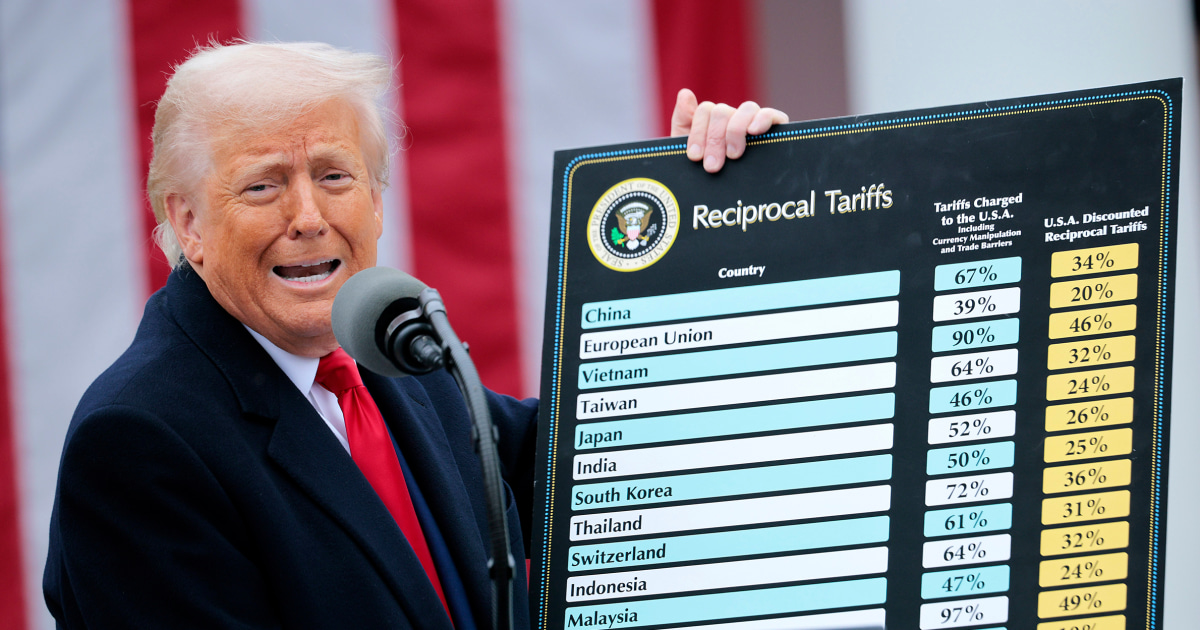How Trump’s Tariffs Could Undermine the GOP Majority
Former President Donald Trump’s proposed tariff policies, including a universal 10% levy on imports, threaten to fracture Republican unity and alienate key voter blocs ahead of the 2024 elections. As GOP leaders grapple with internal divisions, economists warn these protectionist measures could spark inflation, hurt rural constituencies, and jeopardize the party’s fragile House majority. The strategic dilemma highlights growing tensions between Trump’s populist agenda and traditional conservative economic principles.
The Tariff Proposal and Its Political Fallout
Trump’s call for sweeping tariffs—expanding upon his 2018-2019 trade wars—has reignited debates within Republican circles. While some allies frame the policy as a bold economic reset, dissenting voices point to potential repercussions:
- Consumer costs: The Tax Foundation estimates a 10% across-the-board tariff could reduce after-tax incomes by 0.9% and eliminate 505,000 jobs
- Agricultural backlash: Retaliatory tariffs from trading partners previously cost U.S. farmers $27 billion in exports during Trump’s first term
- Manufacturing strain: Industries relying on imported materials would face higher production expenses
“This isn’t 2016 anymore—voters remember the downsides of trade wars,” said Dr. Linda Whitmore, a political economist at Georgetown University. “Midwestern swing districts won’t tolerate another round of farm bankruptcies just to score rhetorical points against China.”
Divisions Within the Republican Coalition
The tariff debate exposes fault lines between three GOP factions:
- Populist nationalists who prioritize domestic job creation over free trade
- Business conservatives advocating for supply chain stability
- Libertarian-leaning members opposing government market intervention
House Speaker Mike Johnson faces particular pressure, with 18 Republicans representing districts where tariffs could increase consumer prices by 3-5%. “Leadership can’t ignore the math,” remarked former RNC strategist Mark Kovak. “When grocery bills jump six months before an election, vulnerable members will revolt—or lose their seats.”
Economic Data vs. Political Messaging
While Trump frames tariffs as a tool to “punish outsourcing,” Federal Reserve research suggests previous rounds:
- Reduced manufacturing employment by 0.6% despite protectionist promises
- Increased costs for 82% of U.S. industries using steel and aluminum imports
- Failed to significantly revive the Rust Belt manufacturing base
However, the political narrative often outweighs empirical evidence. “Tariffs play well in rallies as symbols of toughness,” noted Democratic pollster Elena Ruiz. “But governing requires balancing symbolism with kitchen-table realities.”
Electoral Consequences for 2024
The policy’s timing creates unique risks:
| Voter Bloc | Potential Impact |
|---|---|
| Suburban moderates | Price sensitivity could drive defections |
| Rural producers | Export markets may shrink again |
| Working-class voters | Mixed reactions based on industry |
With 42 House Republicans holding seats Biden carried in 2020, even minor voter shifts could flip chambers. “The GOP majority rests on a knife’s edge,” said Whitmore. “Economic policies that energize the base but alienate persuadable voters are dangerously myopic.”
The Path Forward for GOP Leaders
Republican strategists suggest several damage-control measures:
- Exempting critical consumer goods from tariffs
- Pairing tariffs with tax cuts to offset price hikes
- Focusing enforcement narrowly on China rather than allies
As Kovak observed: “The party needs to decide whether doubling down on Trump’s 2016 playbook accounts for today’s economic realities. Nostalgia doesn’t pay the bills.”
Looking Beyond 2024
The tariff debate reflects broader ideological struggles within the GOP. While populists argue for economic nationalism, traditionalists warn against abandoning Reaganite free-trade principles. This tension may define the party’s direction for decades.
For voters seeking clarity on how trade policies affect their communities, nonpartisan resources like the Congressional Research Service provide objective analysis. As campaign rhetoric intensifies, separating fact from political theater becomes increasingly vital.
The coming months will test whether Republican leaders can reconcile competing visions—or whether economic policy becomes the wedge that splits their majority coalition. One certainty remains: in politics as in economics, every action triggers consequential reactions.
See more BBC Express News

